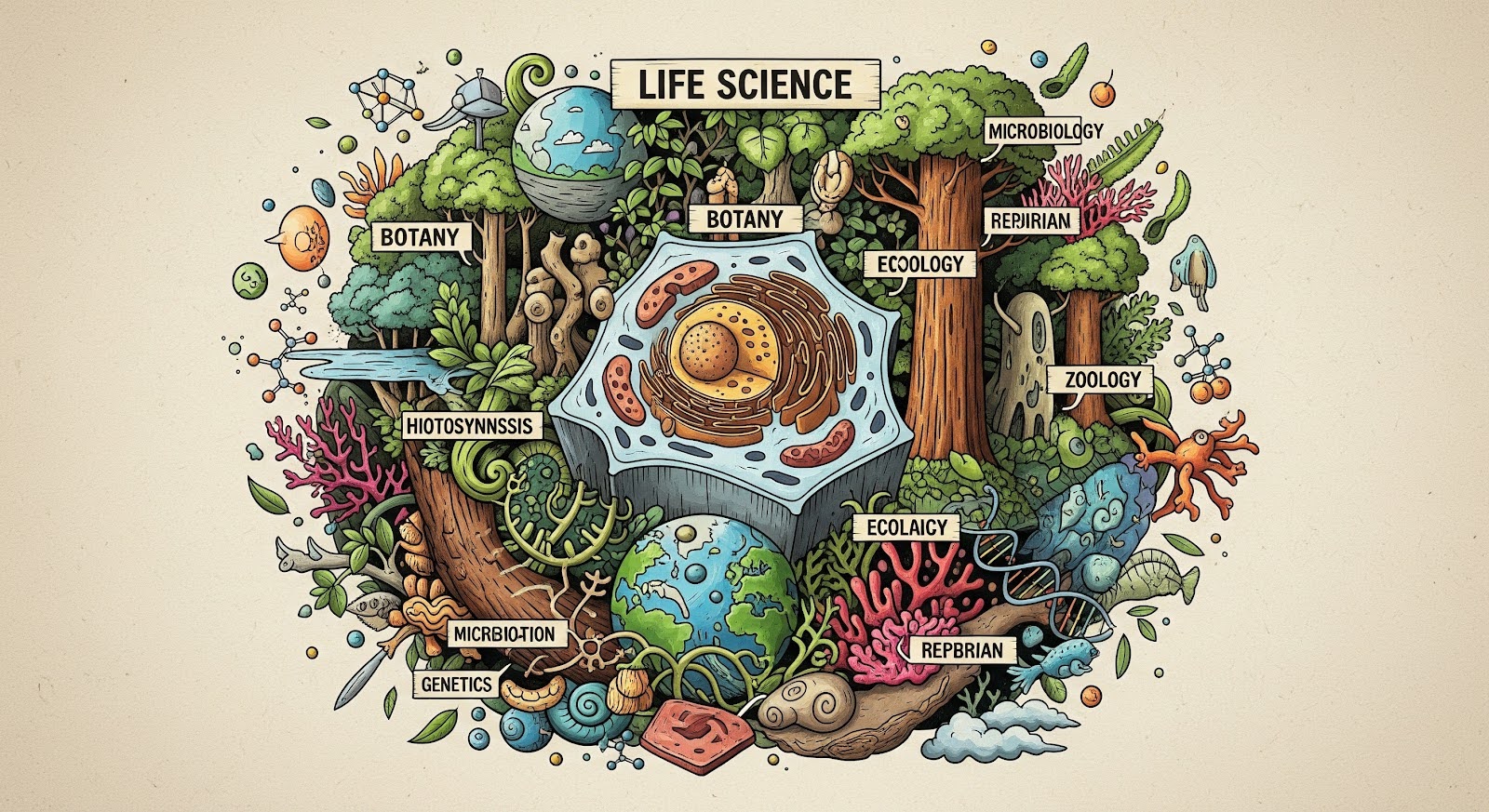Coming Soon!
Overview
This component uses custom JavaScript to open and close. Custom attributes and additional custom JavaScript is added to this component to make it accessible.
A pre-university programme that builds a strong academic groundwork in science and enhances general skills required for university education. Core subjects usually include Biology, Chemistry, Physics, Mathematics, English for Academic Purposes, and basic computing. Many institutions enrich the curriculum with modules like Study Skills, Critical Thinking, and introductory electives tailored for medical or engineering pathways.
Many Students Choose Science Because:
- It offers clear progression into science and engineering undergraduate degrees such as Medicine, Pharmacy, Biotechnology, Computer Science, and Environmental Science.
- The strong scientific base equips students with the knowledge needed for STEM-focused degrees.
- Many programmes include soft skills training, like academic English and research skills, that are valuable across disciplines.
- It provides a flexible foundation that allows you to explore different scientific or technical fields before committing.
Some Students Do Not Choose Science Because:
- Requires strong prior knowledge and performance in multiple science subjects and mathematics.
- The curriculum is often intensive, with simultaneous lab, theory, project, and exam assessments.
- It may offer less flexibility for students interested in arts, humanities, or purely creative disciplines.
Lifestyle During Study:
- Involves a mix of lectures, tutorials, and laboratory practicals, depending on the institution.
- Assessments combine coursework (projects, lab reports, presentations) and final exams.
- Learning environments often include cohort-based classes with supportive faculty and a structured timetable.
After Graduation:
- Students transition seamlessly into bachelor’s programmes like Medicine, Pharmacy, Engineering, Biotechnology, Computer Science, Nursing, or Environmental Science.
- You graduate academically prepared, with experience in labs, group projects, and scientific writing.
- Many programmes include pathway-specific electives that give a head start in undergraduate specialisations.
What is Hard:
- Handling multiple scientific subjects simultaneously, such as advanced biology, chemistry, physics, and calculus.
- Managing time effectively due to the concentrated and fast-paced curriculum.
- Writing detailed and accurate lab reports and tackling complex theoretical assessments.
What is Easy:
- Laboratory sessions often make theoretical concepts easier to understand and more engaging.
- Strong peer-support systems are common in cohort-based learning environments.
- Structured programmes with defined learning outcomes help scaffold student success across modules.
Fun Fact:
Some programmes let you dip your toes into health-related electives like basic anatomy, human physiology, or foundational psychology—giving you an early glimpse into fields like medicine or biomedical science.
This is for You If You Like:
- Understanding how things work through experiments and analysis
- Working with data, equations, and scientific methods
- Solving problems and thinking critically
- Preparing for careers in health, research, technology, or engineering
Career Opportunities (After Degree):
- Medical Doctor
- Pharmacist
- Engineer (Chemical, Biomedical, Electrical, etc.)
- Biomedical Scientist
- Nutritionist / Physiotherapist
- Computer Scientist / Data Analyst
- Environmental Scientist
- Research Technician / Lab Technologist
Relevant Certifications to Consider:
- Bachelor’s degrees such as:
- Medicine, Pharmacy, Biotechnology, Nursing
- Engineering, Computer Science, Environmental Science
- Biomedical Science, Health Sciences
- Postgraduate or professional pathways:
- Medical Licensure, Clinical Laboratory Certification
- Engineering registration, Public Health qualifications
The information on this page is generalized based on common program descriptions worldwide and does not necessarily reflect all courses offered within the programs at the universities below. If you need help deciding which university to choose, consult with one of our team experts to guide you in choosing your best university option for this program.
This component uses custom JavaScript to open and close. Custom attributes and additional custom JavaScript is added to this component to make it accessible.
| Universities | Type | Ranking | Programme name | Cost/Duration |
|---|---|---|---|---|
#118 | Bachelor of Computer Science | RM000,000/0.0 years | ||
#1001 | Bachelor of Computer Science with Honor | RM140,000/4 years | ||
#65 | Bachelor of Computer Science | RM50,000/3 years | ||
#65 | Bachelor of Computer Science | RM70,000/4 years |

.png)




.jpeg)

.png)
